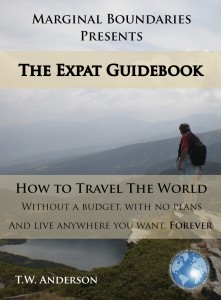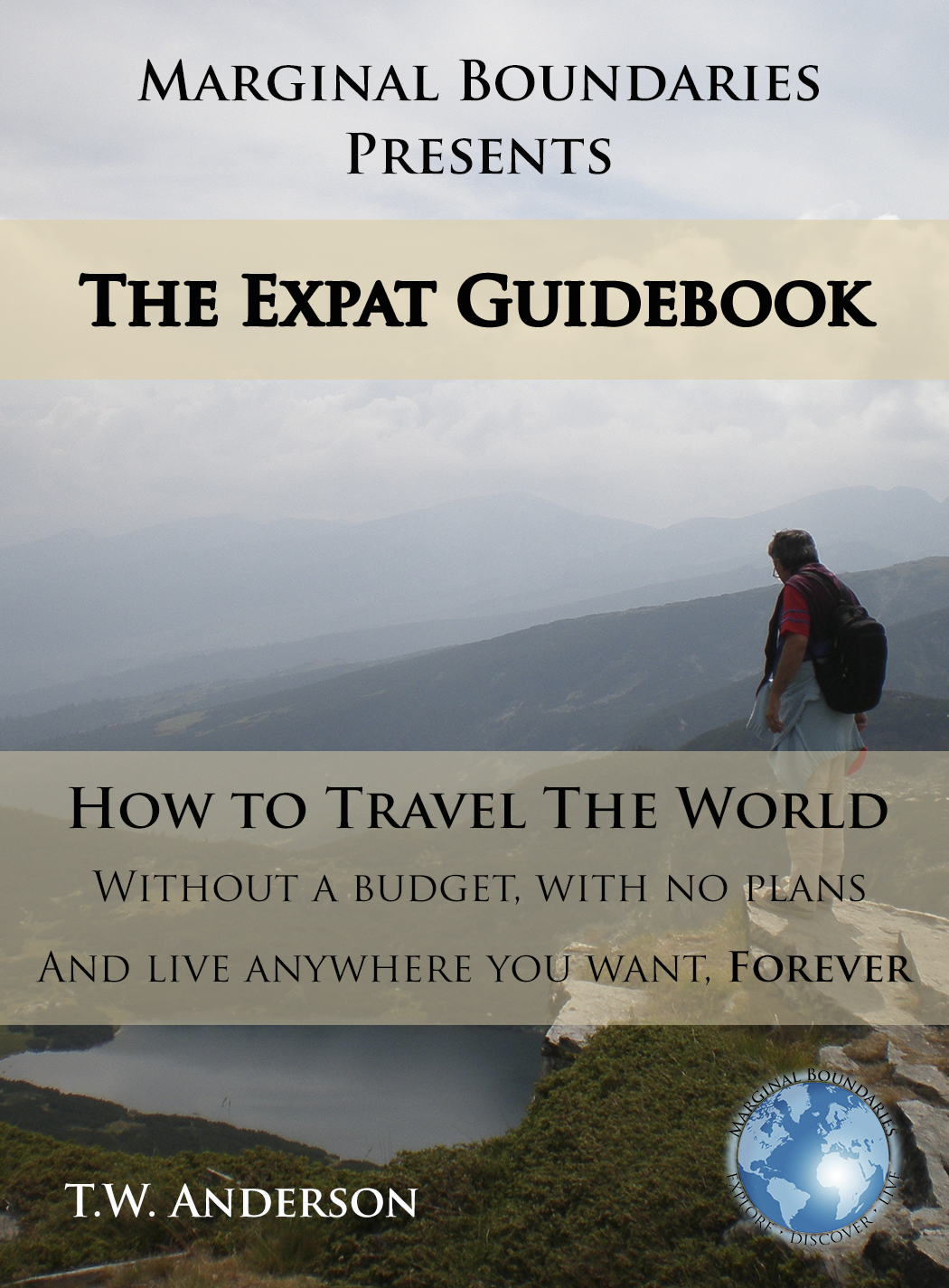
How Moving Abroad Can Save Your Life
Posted by T.W. Anderson | economy, Freedom, Live Like a Local, Quality of Life, Traveling Tips | 4 CommentsFather-of-two Colin Timpson, 50, has seen his monthly income plummet from a salary of £4,000 per month to just £900 in benefits since he became unemployed after his contract ended three years ago. He has applied for 700 jobs but secured only 20 interviews and gained just two weeks of temporary work since he became unemployed. He is a qualified accountant with decades of experience who is surviving on one meal a day to properly feed his children after applying for more than 700 jobs over three years without success. He is the average, ordinary, middle class, a casualty of the stagnation in the United Kingdom and other Western countries.
Meanwhile, in the same article we see others suffering the same fate. Richard Shakespeare, of Sinfin, Derbyshire applied for 1,923 jobs after becoming redundant in 2009. He stopped job hunting to become a self-employed consultant advising businesses on disability issues 12 months later. Former mechanical engineer Andrew Allerton, of North Shields, Newcastle-upon-Tyne applied for 1,000 jobs over four years. Former administrative worker Leslie Friend, of Epsom, Surrey applied for 600 jobs after he became unemployed in 2008. And if you think it’s bad in the United Kingdom, take a look at the United States, where the situation is even more dire and university students are giving up on hope entirely.
All of these people share a similar problem: a lack of work in their local environment. No jobs, redundancy, lowered wages, higher costs of living, more taxes to continue wars that the vast majority of people don’t support in the first place, staggering inflation, corporate lies and bailouts and a general elimination of the middle class has left the vast majority of people like Colin Timpson stranded in the prime of their lives, skewered by the very same system they had been taught since birth to rely on.
Thankfully, there is a very simple solution to their problems: stop focusing on local opportunities (which are nonexistent) and instead look abroad for work in other parts of the world where the economies are thriving. Such as Brazil, where lawyers make 21% more than they do in the United States and the economy just passed up Britain in 2012 to land on the number 6 position for most economically sound. Or countries like Chile, where Google is presently setting up a hub in Santiago to take advantage of the massive boom that most South American countries are currently going through.
Of course, moving abroad to take advantage of job opportunities means learning a new language, relocating the family and basically starting life over, but when you are faced with sink-or-swim options the vast majority of sane, intelligent individuals will choose to swim and fight against the odds no matter what, especially when their are children on the line.
I’m a freelance writer first and foremost and I can tell you this: the current trends playing out in the United States and the United Kingdom are mirrored in the online arena. Jobs in the English language are so over-saturated that the supply-and-demand realities are driving all of the content generation to India, Pakistan, Indonesia and other countries where qualified English workers can supply the lowest bid. The English language market had a 20 year headstart on the other languages as the Internet boom of the 90s was predominantly enjoyed by the U.K. and U.S. before anyone else. And now that the supply has caught up with the demand there is a backlash where those who were previously at the top of the totem pole are suddenly toppled from their lofty heights.
But if you start looking outwards rather than inwards there are countries and markets which are booming with work for qualified professionals. You just have to be willing to take a global outlook on life. Learn another language. Or two, or three. Be willing to look for work in another country, either in the online arena or take your skills to a country such as Brazil, China, Colombia, Chile, Mexico, New Zealand and beyond where the markets are booming and there is a need for educated, qualified professionals with the relevant skills.
The Spanish, Hindi, Mandarin, Portuguese, French and German markets are flush with work, especially in the online arenas as these other primary languages begin their own rush to fill the online marketplace with language-specific content. Digital entrepreneurs are flourishing in the current era…but only because they have chosen to go global. The new era is all about the entire planet being our Singular Home, which means the new local includes any corner of the planet. Which means anywhere there is an Internet connection and connectivity there are jobs and economies thriving as other countries around the world have their time to shine.
Haven’t learned how to make money online yet? Find a mentor. Take a course. Dedicate a few months of your time to learn how to feed your family in a way that is currently seeing massive growth and economic security. Haven’t learned Spanish or Mandarin or Hindu yet? You are only shooting yourself in the foot by not learning another major language, or more than one. Tired of spending tens of thousands per year on inflation and a cost of living that is oppressive? Find a country like Mexico or Bulgaria or Brazil or Chile where the standards of living are high, the cost of living is practically nothing for someone living on the euro or the dollar, and where you can afford for your family to live like kings rather than paupers.
“But my extended family/friends/community/things I’m familiar with are all here!”, you cry. “This is my home!”
Wrong. Planet Earth is your home. The entire population is your community. The sense of nationalist pride that governments instill into the minds of their people is nothing more than a form of cultural brainwashing, a way of motivating people to fight in wars and follow orders and “believe in something greater than yourself”, when in reality that just means following someone else’s version of what the future should look like. True freedom, the human right that we all have, isn’t something that is allowed or given as a gift just because you happen to have accidentally been born in a specific place on the planet.
Skype and other video calls have made instant video communication around the world instantaneous. Planes cover the globe every second of the day. A four hour drive to visit your family on the holidays is no different than a four hour plane flight. You can talk with your family and friends anywhere in the world for free with voice and video chat. There are absolutely no reasons why you cannot live in India just as easily as you can in Hawaii or Germany or Bulgaria or Argentina. There are only the excuses that years of fear and brainwashing (the world beyond the borders of your home country is dangerous/evil/inferior/filled with terrorists/Great White Demons/communists/capitalists/terrorists/morally evil/etc.) have bred into you.
Break the chains that bind you. Do you want to live and thrive and see your significant other and children go on to have fruitful lives, or do you want to starve yourself and them as you pinch pennies and live on noodles and water and shop at 3rd generation thrift stores to clothe your family? Do you want to continue beating your head against the never-ending chain of English-language candidates who are applying to jobs, unable to stand out amongst the million other grains of sand, or do you want to live in a place where your skills are not only desired but welcomed?
The opportunities are there….they just exist in other countries, in other languages, as the market continually shifts. The only way to take advantage of that is by being willing to consider the entire planet as your home, rather than one tiny dot on the map. You can choose to go from making 4k a month to living on noodles and watching your children’s future disappear…or you can choose a life of prosperity and wealth in a country of your choosing.
Don’t know where to start? There’s hundreds of people out there just like me who have developed websites and platforms that can help you get started. The Other Resources tab at the top of the page has links to some of my favorite fellow bloggers and international citizens, all of whom are living in other countries, traveling for a living and most of whom are making a healthy 50-60k+ a year while living in countries where their cost of living is almost nill. Our StumbleUpon profile also has links to some of my favorite travel-and-money-making writers and websites and videos.
Don’t forget to sign up for our free newsletter for several-times-a-week, your-eyes-only travel and entrepreneur tips, plus receive a complimentary copy of our 85-page starter book on location independence and living abroad, 30 Ways in 30 Days.











